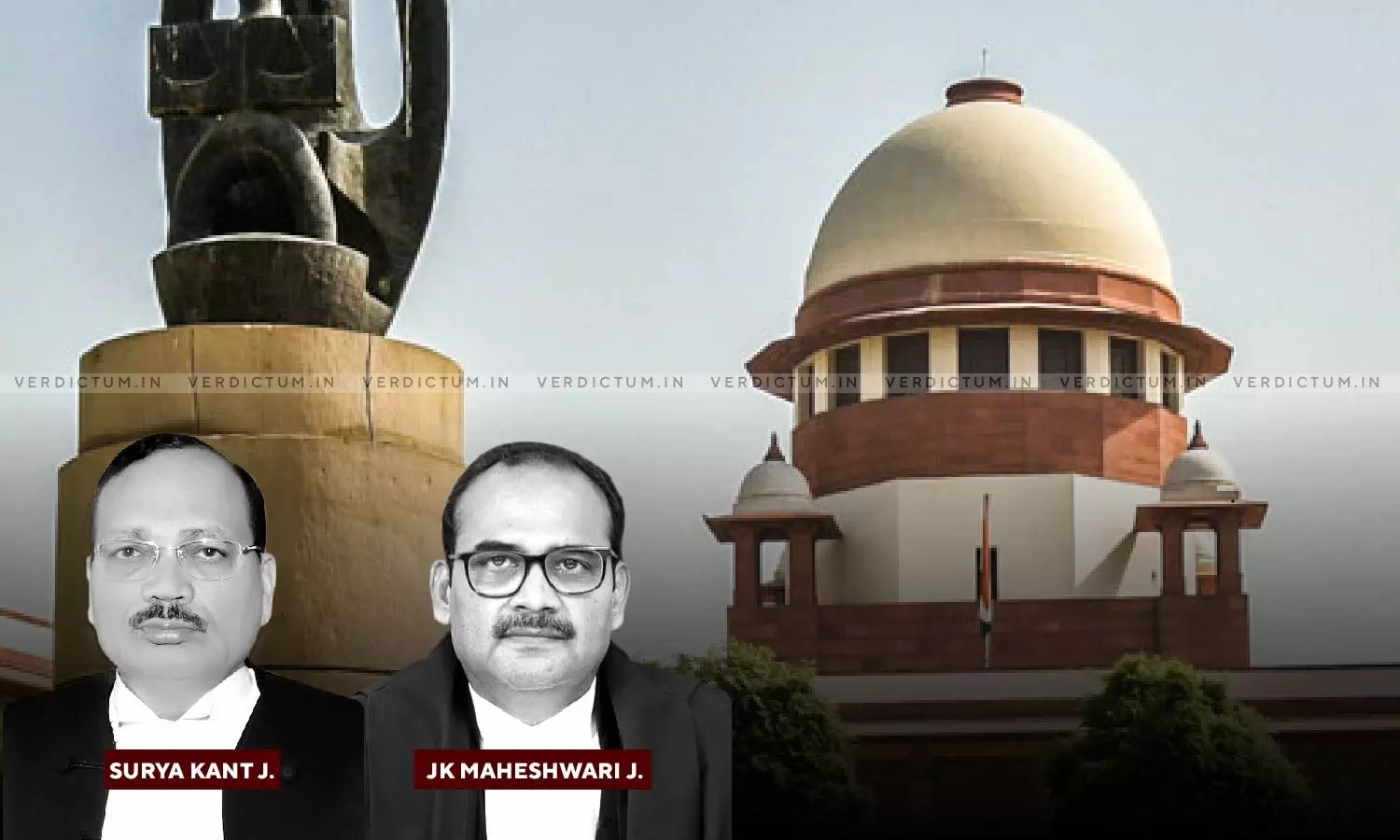
Public Prosecutor Has To Apply His Mind Independently To Form View For Withdrawal Of Prosecution With Consent Of Court- SC
 |
|The Supreme Court has observed that with a view to helping the main accused, the State of West Bengal took a complete u-turn to the extent of resorting to its powers under Section 321 of the Criminal Procedure Code, 1973 (CrPC) and withdrawing the prosecution.
As some of the apprehensions raised by the petitioners were genuine the Court ordered to transfer the case from Additional Sessions Judge to the Court of City Sessions Court with a direction to complete the trial within six months.
The Bench of Justice Surya Kant and Justice J.K. Maheshwari observed that “A plain reading of Section 321, CrPC leaves no room to doubt that it is the Public Prosecutor incharge of the case who has to apply his mind independently and impartially to form a view for withdrawal from the prosecution with the consent of the court. The procedure followed in the case in hand was completely alien to the scheme of Section 321, CrPC as the decision to withdraw prosecution was taken at the level of the State Government and the Public Prosecutor was merely asked to act upon the said Government notification. The Link Judge also showed tearing hurry in accepting the application of the Public Prosecutor and permitting withdrawal from prosecution even before the date when the case was listed for prosecution evidence.”
Senior Advocate P.S. Patwalia appeared for the petitioner and Senior Advocates Kapil Sibal and Neeraj Kishan Kaul appeared for the State of West Bengal- respondent no.1 and Senior Advocate V. Giri appeared for respondent no. 2.
In this case, the deceased, who was working in the office of a political party was shot dead by unknown musclemen and goons. FIR was registered under Section 302 read with Section 120B of the Indian Penal Code, 1860 (IPC) and, under Sections 25 and 27 of the Arms Act, 1959.
During the pendency of Trial, the Legal Remembrancer & Ex-Officio Secretary to the Government of West Bengal, Judicial Department, by an order of the Governor, issued a notification and directed the Public Prosecutor to apply under Section 321 of CrPC and withdraw the criminal proceedings against respondent Nos. 2 to 11, subject to the consent of the learned Trial Court. The Link Judge allowed the withdrawal of the prosecution. This notification was challenged, and the Calcutta High Court had set aside the withdrawal of the prosecution.
Due to the multiple abnormalities which occurred during the pendency of the Trial, and the continuous harassment meted out to the prosecution witnesses, the petitioner had filed the Transfer Petition before the Apex Court.
The Apex Court noted that the petitioner being the brother of the deceased was a party interested under Section 406(2) of the CrPC and therefore, was vitally interested in a fair trial so that the deceased and his family get justice.
Regarding the law for transfer of the case, the Apex Court said that the convenience of parties and witnesses as well as the language spoken by them were also relevant factors when deciding a transfer petition.
“it appears to us that there is no legal necessity to transfer the trial outside the State of West Bengal and the apprehensions of the Petitioner, some of which are indeed genuine, can be effectively redressed by issuing appropriate directions. We say so for the reason that more than 90 witnesses, most of whom are Bengali speaking, are yet to be examined. The transfer of trial to any other neighbouring state will cause serious impediment in the deposition of those witnesses.” observed the Apex Court.
Accordingly, the Transfer Petition was disposed of.
Cause Title- Afjal Ali Sha @ Abjal Shaukat Sha v. State of West Bengal & Ors.
Click here to read/download the Judgment